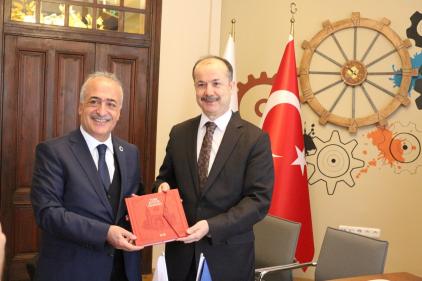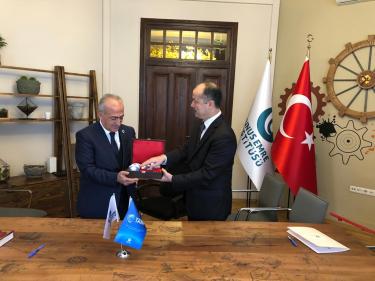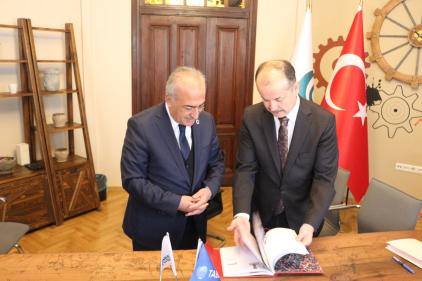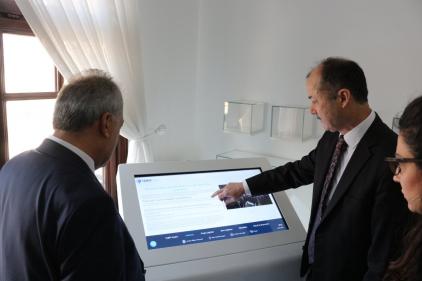Institute, Atatürk University Ink Cooperation Protocol
Yunus Emre Institute and Atatürk University have signed a cooperation protocol on scientific cooperation.
The signing ceremony held on January 15, 2020 was attended by Yunus Emre Institute President Prof. Dr. Şeref Ateş, representing the Institute, and Atatürk University Rector Prof. Dr. Ömer Çomaklı, representing the University.
The protocol aims to set the procedures and rulers for establishing general cooperation as well as activities and work to be conducted within the context of this cooperation as part of the Academic and Scientific Cooperation Project of Turkey (TABİP).
Institute President Prof. Dr. Ateş delivered a keynote speech during the ceremony, giving detailed information on the TABİP project and talked about the contribution the deal will make to academic and scientific work.
"TABİP, Turkey's Information Gate to the World"
Prof. Ateş pointed out that the TABİP project has contributed both to Turkey and to the individuals and institutions with whom Turkey shares its scientific capacity, and cooperation has been established with numerous national and international institutions in this direction. "Atatürk University has a special place in the country's higher education. We are also gratified to cooperate with this eminent and deep-rooted institution. I hope this agreement will make contributions both to our Institute's goals and Atatürk University's vision," he said.
Noting that the "Next Generation University" project the Atatürk University has developed to draw up its road map was quite exciting, Prof. Ateş expressed his thanks to Rector Prof. Dr. Ömer Çomaklı for his contributions to the cooperation and his work at the university.
Rector Prof. Dr. Ömer Çomaklı indicated that the scientific, technological and academic steps taken in recent years have been accompanied with huge gains for the country. Pointing out that the university has been working with might and main to make contributions to these developments, Çomaklı stated that they have triggered a comprehensive transformation process at the university, which has been translated into scientific achievements.
The protocol reportedly covers the assignment of human resources from both institutions, the sharing of technical infrastructure, the conducting of joint projects, the mutual transfer of information and data, the development of institutional capacities and similar cooperation steps.










